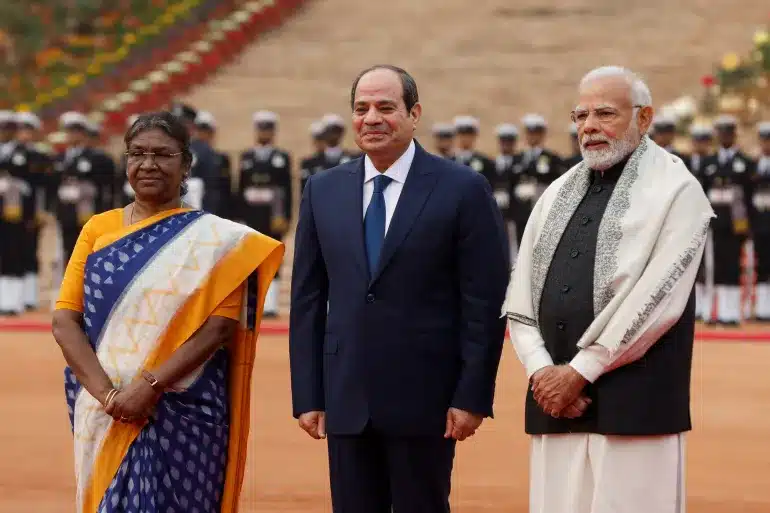In a joint statement released on Thursday, Indian Prime Minister Narendra Modi and Egyptian President Abdel Fatteh El Sisi announced their commitment to increasing investment from India in Egypt, which currently stands at over $3.5 billion. The two leaders expressed satisfaction with the current level of bilateral trade between their countries, which reached $7.26 billion in the 2021-2022 fiscal year, a 60% increase from the previous year.
Modi and Sisi expressed confidence in increasing the bilateral trade target to $12 billion within the next five years through diversifying trade and focusing on value addition. Egypt has also offered to allocate land in the Suez Canal Economic Zone for Indian industries to be developed under an Indian master plan. India is keen to explore business opportunities in the emerging international commercial hub, which is a rival to China’s investments in the region.
The two leaders also emphasized cooperation in the defence industry, with a focus on deepening cooperation and new initiatives to intensify military-to-military engagements. They also discussed cooperation in the trade of strategic commodities and food security to help both countries address the global food crisis. India provided 61,500 tonnes of wheat to Egypt last year after an abrupt halt in wheat shipments from Ukraine, making it India’s largest consignment despite a ban on wheat exports.
Modi also invited Sisi to participate in the G20 summit in India in September, and both leaders agreed to work together to ensure that the interests and priorities of the Global South are given due attention.
India-Egypt relations
India and Egypt have had a long-standing relationship dating back to ancient times, but the modern relationship between the two countries began after Egypt’s independence from British colonial rule in 1952. Since then, the two countries have had generally friendly relations, with India recognizing Egypt as a leader in the Arab and African regions.
However, the relationship has not always been smooth. India’s non-aligned stance during the Cold War resulted in a decline in relations with Egypt, which was closely aligned with the Soviet Union at the time. Relations improved during the 1990s and 2000s, with the two countries engaging in increased trade and cultural exchange.
In recent years, the relationship has strengthened, with both countries emphasizing their shared history and cultural ties, and cooperation in areas such as trade, defense, and education.



















